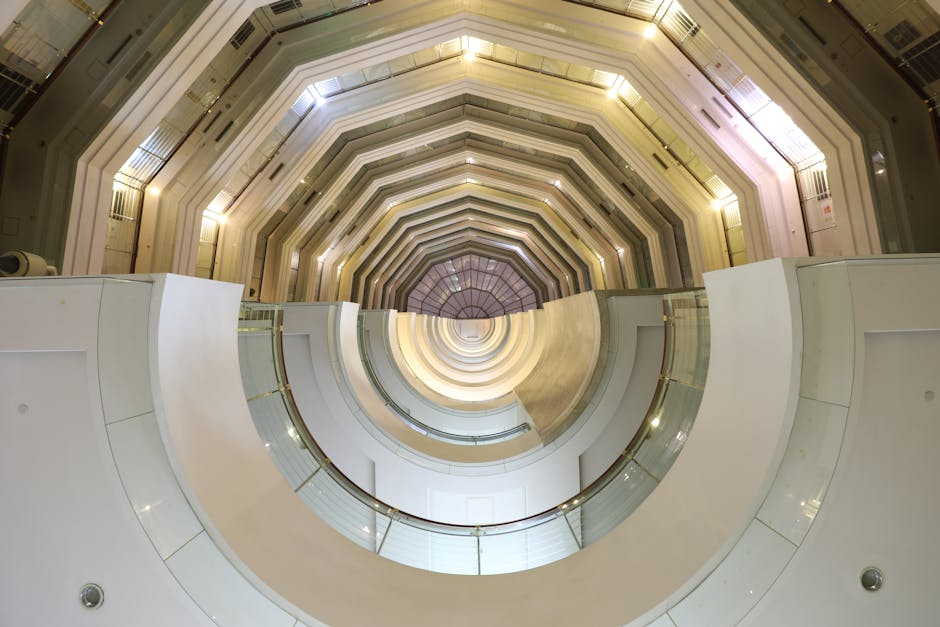The Rise of Hot Desking: How Tech Giants and Financial Firms Are Reshaping Office Spaces
"This article delves into the growing trend of hot desking among major corporations, examining how tech giants and financial institutions are adopting flexible workspace solutions to boost collaboration, optimize real estate, and enhance employee productivity. "

The Rise of Hot Desking: How Tech Giants and Financial Firms Are Reshaping Office Spaces
In today's rapidly evolving business landscape, companies are constantly seeking innovative ways to optimize their workspaces and enhance employee productivity. One trend that has gained significant traction is hot desking - a flexible office arrangement where employees don't have assigned seats but instead choose their work area on a first-come, first-served basis. This article explores how major corporations, particularly in the tech and financial sectors, are embracing hot desking and other flexible workspace solutions to revolutionize their office environments.

Google's Approach to Hot Desking
Google, known for its innovative workplace culture, has been experimenting with hot desking in various offices worldwide. The tech giant's approach to flexible seating arrangements is designed to foster collaboration and creativity among its diverse workforce. By implementing hot desking, Google aims to break down departmental silos and encourage spontaneous interactions between employees from different teams.
Credit Suisse: Pioneering "Smart Working"
Credit Suisse has taken a bold step towards modernizing its workspace with the introduction of "smart working" in several of its global offices. The financial institution's Singapore and Zurich locations have been at the forefront of this initiative, partnering with architectural firm Camenzind Evolution to create an open office environment that supports hot desking.
At Credit Suisse, the majority of the 200 employees, regardless of their job titles, have the freedom to choose their workspaces daily. This approach not only optimizes space utilization but also promotes a more egalitarian work culture. The company has even introduced "touchdown areas" - small working spaces designed for short-term use of up to one hour, perfect for quick meetings or focused work sessions.
Deloitte's Futuristic Edge
Deloitte made headlines when it moved into "The Edge," a cutting-edge, environmentally friendly building in Amsterdam. This move marked a significant shift in the company's workplace strategy, as they embraced hot desking on a large scale. The office features 1,000 desks shared among 2,500 workers, completely eliminating private offices and assigned seats.
The Edge is designed with distinct neighborhoods for hot desking and hoteling, allowing employees to choose workspaces based on their daily schedules and tasks. This flexible approach has not only optimized Deloitte's real estate usage but has also created a more dynamic and collaborative work environment.

Microsoft's Activity-Based Workplace
Microsoft's transition to an activity-based workplace model demonstrates how even traditional tech companies can benefit from flexible seating arrangements. The company redesigned its offices to create a more communal, flexible, and progressive workspace that aligns with its innovative products.
The shift to this new model was driven by the need to improve collaboration and communication among Microsoft's employees and customers. The results have been overwhelmingly positive, with annual work health index surveys consistently showing high employee satisfaction with the flexible environment.
Citigroup's Open Office Revolution
In the financial sector, Citigroup has made waves by adopting an open office plan that incorporates hot desking. Even the CEO, Michael Corbat, gave up his private office in support of this initiative. The bank's move to a more flexible workspace was motivated by the desire to boost communication, increase employee energy, and reduce costs.
While there was initial hesitation from some long-time employees, Citigroup's management remained confident in the benefits of this new approach. The open office layout has since fostered a more transparent and collaborative work culture within the organization.

The Impact of Hot Desking on Corporate Culture
The adoption of hot desking by these industry leaders signals a significant shift in corporate culture. This trend towards flexible workspaces is not just about optimizing real estate; it's about creating environments that foster innovation, collaboration, and employee well-being.
Benefits of Hot Desking:
- Enhanced Collaboration: By removing physical barriers between departments, hot desking encourages cross-functional interactions and idea sharing.
- Increased Flexibility: Employees have the freedom to choose workspaces that best suit their tasks and preferences.
- Optimized Space Utilization: Companies can make more efficient use of their office space, potentially reducing real estate costs.
- Improved Work-Life Balance: Flexible seating arrangements often come with more flexible working hours, contributing to better work-life balance.
Challenges to Consider:
- Personalization: Employees may miss having a personalized, permanent workspace.
- Technology and Equipment: Ensuring all necessary technology and equipment are available at each workstation can be challenging.
- Privacy Concerns: Open layouts may raise concerns about privacy and confidentiality.
Implementing Hot Desking Successfully
For companies considering the implementation of hot desking, here are some key factors to consider:
- Invest in Technology: Utilize workplace management software to streamline desk booking and space allocation.
- Create Diverse Spaces: Offer a variety of work areas to accommodate different tasks and working styles.
- Establish Clear Guidelines: Set clear policies on desk usage, cleanliness, and equipment handling.
- Provide Adequate Storage: Ensure employees have secure storage options for personal items.
- Encourage Feedback: Regularly solicit and act on employee feedback to refine the hot desking system.
The Future of Workspace Design
As more companies adopt flexible workspace solutions like hot desking, we can expect to see continued innovation in office design and technology. The future workplace will likely be characterized by adaptable spaces that can be quickly reconfigured to meet changing needs, supported by advanced space optimization technologies.

In conclusion, the adoption of hot desking by industry leaders like Google, Credit Suisse, and Deloitte demonstrates the growing recognition of the benefits of flexible workspaces. As companies continue to prioritize collaboration, innovation, and employee well-being, we can expect to see more organizations embracing this trend and reshaping their office environments to meet the evolving needs of the modern workforce.
By carefully considering the needs of their employees and implementing thoughtful design and technology solutions, companies can create dynamic, efficient, and inspiring workspaces that drive productivity and foster a positive corporate culture. The future of work is flexible, and hot desking is leading the way in this workplace revolution.
Want to learn more about Desk Booking?
Explore our complete guide with more articles like this one.

